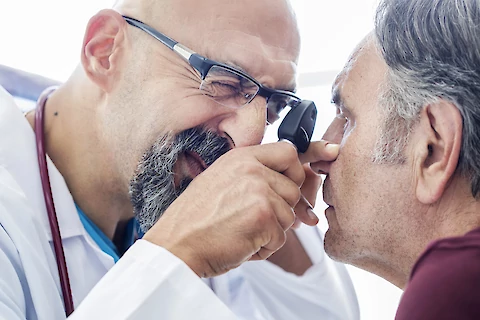
Understanding glaucoma and other common age-related diseases is crucial for maintaining overall health among seniors. Glaucoma, a leading cause of blindness, often goes unnoticed until significant vision loss has occurred. However, with early detection and proper care, it's possible to prevent or slow down vision impairment. Let's learn more about the condition and how seniors can protect their sight proactively.
What is Glaucoma?
Glaucoma is a group of eye conditions leading to optic nerve damage, which is crucial for good vision. It usually occurs due to a rise in pressure within the eye. However, it can also happen with normal eye pressure. Different types of this disease include open-angle, angle-closure, and normal-tension glaucoma. Your eye doctor can distinguish between the types based on their distinct characteristics. Still, each poses severe threats to vision, especially among senior populations.
Symptoms of Glaucoma
The tricky part about understanding glaucoma is that its early stage rarely has noticeable symptoms. This is why it's often called the "silent thief of sight." The gradual loss of peripheral vision (side vision) is usually the first noticeable sign of open-angle glaucoma. As the condition progresses, other symptoms may become apparent. These symptoms can vary depending on the type of glaucoma, and the stage of the disease.
It's important to note that any noticeable symptoms may indicate advanced stages of the disease. This means that irreversible vision damage has already occurred. Since early-stage glaucoma may not present noticeable symptoms, routine eye exams are crucial for early detection and management.
If you experience sudden, severe eye pain, vision changes, or any of the symptoms above, seek immediate medical attention. These could be signs of a medical emergency.
Risk Factors for Glaucoma
Some of the common risk factors for glaucoma include:
- Age: The risk of glaucoma increases with age, particularly after age 60. However, glaucoma can develop at any age.
- Family History: If you have a family history of glaucoma, you are at a higher risk of developing the condition.
- Medical Conditions: Certain medical conditions, such as diabetes, high blood pressure, and heart disease, may increase the risk of glaucoma.
Importance of Regular Eye Check-ups
In the face of these silent and gradual symptoms, regular eye check-ups become crucial for the early detection of glaucoma. These exams typically involve measuring intraocular pressure, testing for optic nerve damage, and checking for areas of vision loss through a visual field test. At Senior Helpers Northwest Atlanta, we can assist seniors with arranging appointments and transportation so they do not miss these regular check-ups.
Need Help Maintaining Eye Health?
Understanding glaucoma is a fundamental step toward protecting your eyesight in your golden years. With regular eye check-ups and early intervention, preventing irreversible vision loss is possible. If you live in Atlanta, Austell, Lithia Springs, Mableton, or Smyrna, Senior Helpers Northwest Atlanta is here to support you. We offer a wide range of in-home care services which can be personalized for your specific needs. Contact us today to learn more about how we can support you.